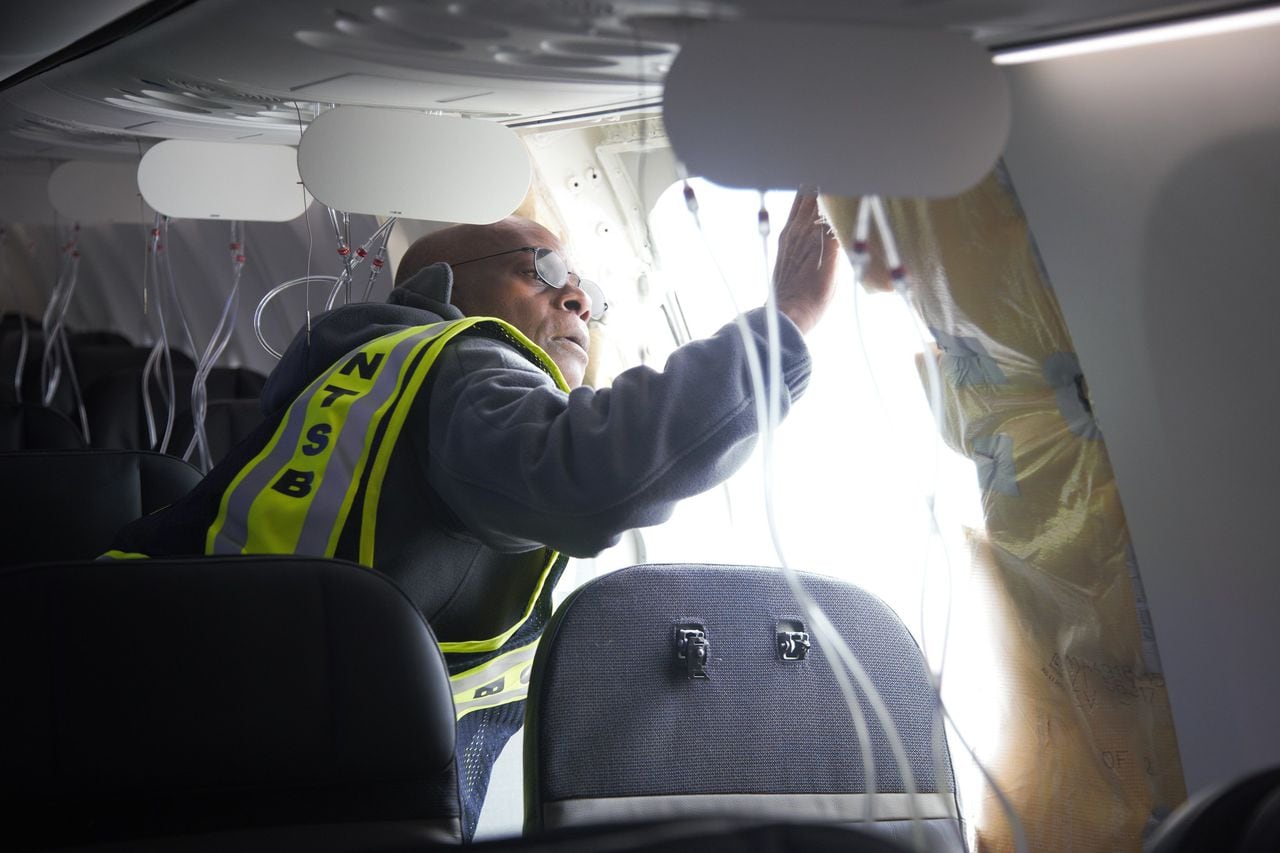Great PR aside, Boeingâs problem is with physics
We Catholics don’t quote the King James Version of the Bible very often. We prefer the more modern New American Bible. However, the majestic language the KJV contains is sometimes so apt and, and in this case, also so secular.
“Pride goeth before destruction, and a haughty spirit before a fall,” says the Book of Proverbs in chapter 16, verse 18.
I’m talking not about the divine. Not the wings of angels, but of airplanes.
More than 15 years ago, executives at Boeing derided the ability of Alabama workers to build airplanes. As Airbus is poised to increase production at its huge assembly line in Mobile, Ala., and as Boeing attempts to live down two crashes in which pilots could not control the planes — and, more recently, a door popping off in mid-air because of careless installation — it’s difficult to not be as bigoted and unfair to them as they were to us as Airbus and Boeing competed for a military contract.
This isn’t, or shouldn’t be, about the merits of either company. Boeing has apparently lost control of some of its manufacturing processes. Airbus is not spotless, either. Back in 1988, the inaugural passenger flight of its A320 ended with a spectacular crash in a French forest.
It’s about the unforgiving nature of physics.
From “burning belly fat” to some “weird trick” to make you sleep soundly, we all hear about fixes and facts that are complete nonsense. The difference between what’s real and what’s not seems to be a matter of what the most gullible among us will believe.
But aviation isn’t that way. No matter how good your public relations team may be, you can’t fix a serious mistake in the operation, design or manufacture of an aircraft with wishful thinking. As the saying goes in the aviation community, the penalty for such errors is death.
I’ll admit that the tiny bit I know about aviation comes from watching a few steady and highly qualified YouTubers. Not the nuts, not the wannabe experts, but people who know their subject and explain it well.
Over and over, the theme is the same: There are some things that you just can’t do without bad or fatal results.
Airline pilot and YouTuber Juan Brown recently referred to a poster that I remember seeing long ago. It shows an old-fashioned airplane crashed in the top of a tree. The caption on the poster reminds us how unforgiving airplanes are: ”Aviation in itself is not inherently dangerous. But to an even greater degree than the sea, it is terribly unforgiving of any carelessness, incapacity or neglect.”
It’s a lesson for more than aircraft enthusiasts.
Crashes, fire, death and destruction are not as sure in most of our activities as they are in aviation — and that’s a good thing.
However, ignoring the sure bad effects of doing stupid things is not dangerous to only aviators. Just because you can talk yourself into thinking something is a good idea does not actually make it a good idea. Your believing something does not make it so.
Life is more difficult than that. Be it economics, politics, business or your personal life, there’s a reality out there that’s ready to make you stall, spin, crash and burn.
It can happen to any of us, and those who are haughty and proud are the most vulnerable. How much better is it to be thoughtful and work to understand those things that don’t make sense to you? To comport yourself in a way that questions, rather than confirms, your assumptions?
If you are Boeing one day, remember that you may be Airbus the next.
As you make this flight through life, remember that the temporal boundaries of physics and truth are inflexible. Another aviator of old — the mythical Icarus — learned the hard way. Stick your wings on with wax and fly too close to the sun, and you’ll fall every time. Instead, make your wings from a sincere understanding of the world around you and careful attention to the cause and effect of what you do.
You won’t be a fugitive from the laws of physics, and you’ll shield yourself from the danger by avoiding stupid acts.
No one at Boeing intended to make a defective door. No one at Airbus intended to have a maiden flight end in disaster. Icarus didn’t want those wings to melt off.
Don’t try to live in the world as you want it to be. Live in it as it is.
And have a nice flight.
Frances Coleman is a former editorial page editor of the Mobile Press-Register. Email her at [email protected] and “like” her on Facebook at www.facebook.com/prfrances.
